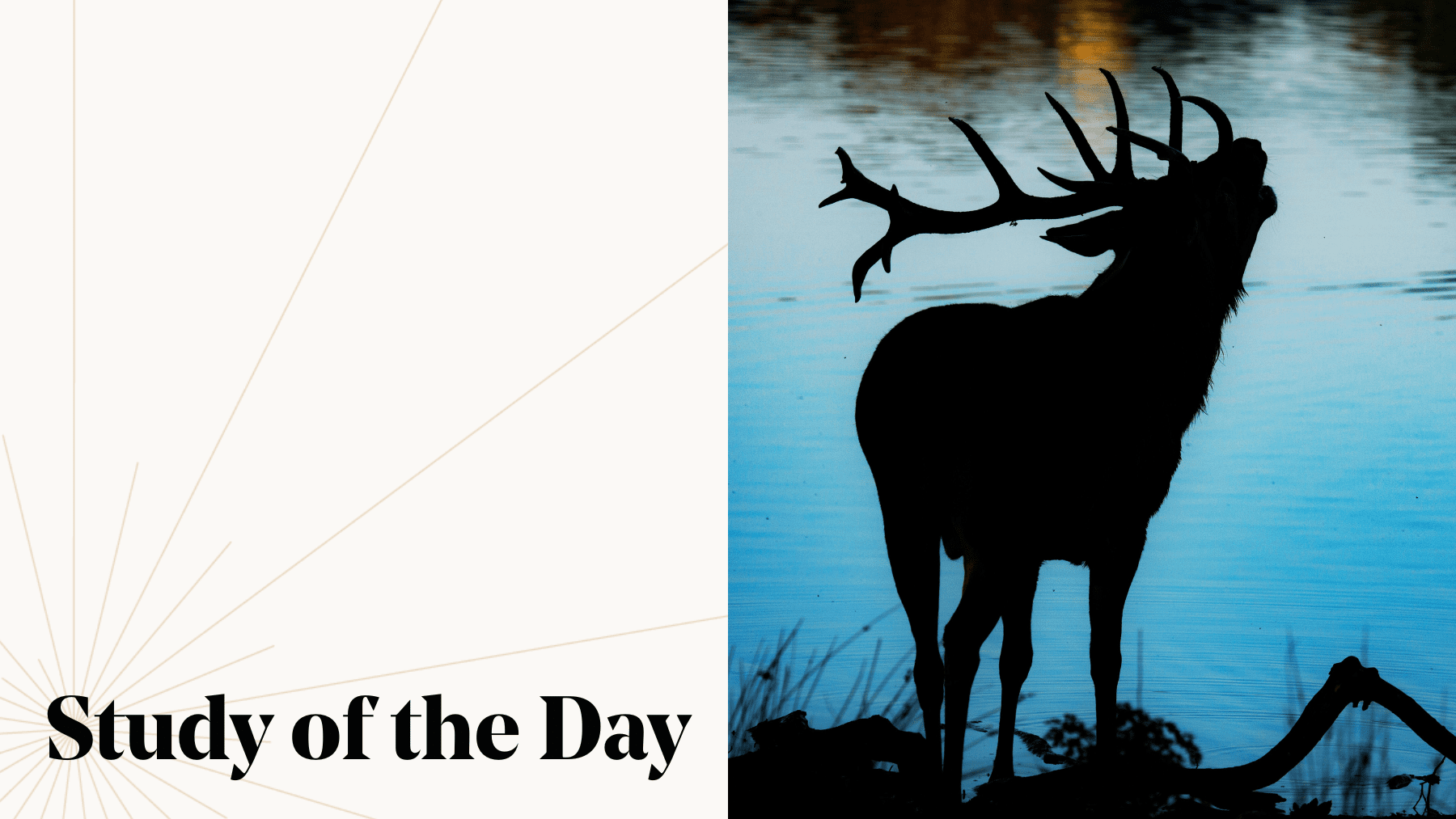In our Study of the Day feature series, we highlight a research publication related to a John Templeton Foundation-supported project, connecting the fascinating and unique research we fund to important conversations happening around the world.
In the opening pages of the second half of his 1755 Discourse on the Origins of Inequality, Jean-Jacques Rousseau imagines a scenario in which a group of early human hunters work together to stalk a stag—at least until one of them sees the chance to break cover to capture a hare. “Having caught his own prey,” Rousseau says of this not-so-noble savage, “he would have cared very little about having caused his companions to lose theirs.”
In game theory, stag-hunt problems are scenarios where individual actors must choose between a higher-risk chance for a shared large reward or going for a smaller, lower-risk prize, even though doing so will likely spoil the hunt for everyone else. Unlike that other great game theory chestnut, the prisoner’s dilemma, in which betrayal is the most rationally self-interested choice for all involved, the stag hunt has the potential for a happier ending where individual rational choices lead to mutual cooperation.
Rather than equally sharing the stag among the successful hunters, the stag is divided according to the status of each hunter—which accrues like compounding interest or debt based on the result of previous hunts.
That is what a team of economists led by Yaroslav Rosokha of Purdue University recently set out to explore: whether political inequality of outcomes would change the game-theory calculus around cooperation. Using a mix of theoretical modeling, computer simulations, and tests with human subjects, Rosokha’s team looked at how standard multiplayer stag-hunt games are altered when you add a dimension of growing political inequality, where some players were assigned an incumbency advantage akin to what political parties enjoy over repeated election cycles.
What they found was that political inequality and incumbency advantages indeed led to a rapid breakdown of cooperation.
Over a few rounds, as political power accrued to those who had more to start with, cooperation dropped to zero—a depressing, though perhaps unsurprising result.
There was one surprising side-note: a subset of their experiments looked at whether players made different cooperative decisions when they were grouped in teams. They did: the teams proved much less inclined to cooperate with their rivals than the individuals had been. In their modeling, the authors concluded that envy (defined as disutility in being taken advantage of) played a stronger role in group-made decisions than individually-made ones: groups were less willing to risk being taken advantage of than individuals were. The only silver lining, if it can be called that, was that when the researchers added a strong incumbency advantage to the game, the difference between individuals and teams disappeared—but only because nobody wanted to cooperate at all.
It may not be an encouraging finding for the notion of the wisdom of crowds, but the result suggests that groups of people do indeed approach decisions about costs, benefits, and which kinds of risk aren’t worth taking differently from individuals.
Still Curious?
Nate Barksdale writes about the intersection of science, history, philosophy, faith, and popular culture. He was editor of the magazine re:generation quarterly and is a frequent contributor to History.com.
